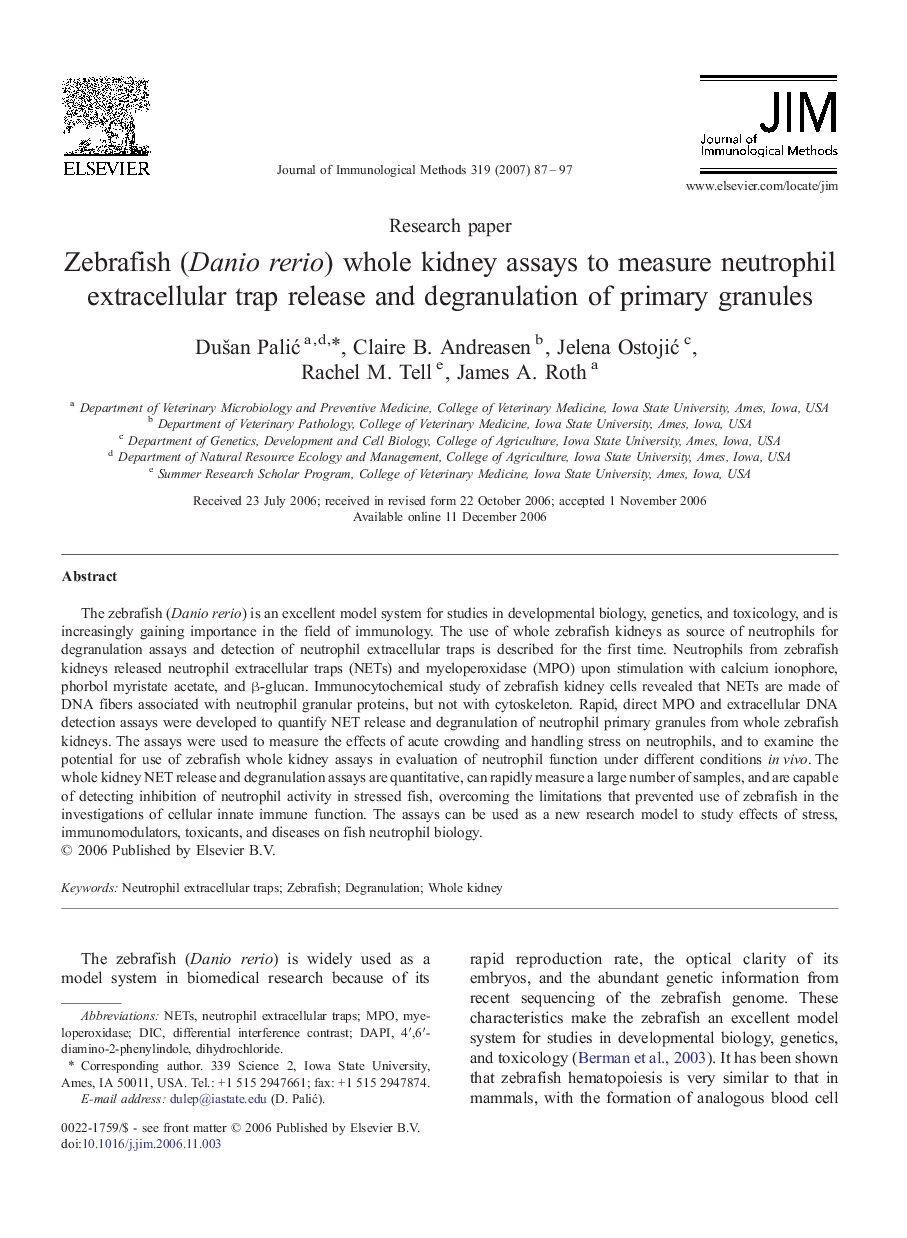| Article ID | Journal | Published Year | Pages | File Type |
|---|---|---|---|---|
| 2089538 | Journal of Immunological Methods | 2007 | 11 Pages |
The zebrafish (Danio rerio) is an excellent model system for studies in developmental biology, genetics, and toxicology, and is increasingly gaining importance in the field of immunology. The use of whole zebrafish kidneys as source of neutrophils for degranulation assays and detection of neutrophil extracellular traps is described for the first time. Neutrophils from zebrafish kidneys released neutrophil extracellular traps (NETs) and myeloperoxidase (MPO) upon stimulation with calcium ionophore, phorbol myristate acetate, and β-glucan. Immunocytochemical study of zebrafish kidney cells revealed that NETs are made of DNA fibers associated with neutrophil granular proteins, but not with cytoskeleton. Rapid, direct MPO and extracellular DNA detection assays were developed to quantify NET release and degranulation of neutrophil primary granules from whole zebrafish kidneys. The assays were used to measure the effects of acute crowding and handling stress on neutrophils, and to examine the potential for use of zebrafish whole kidney assays in evaluation of neutrophil function under different conditions in vivo. The whole kidney NET release and degranulation assays are quantitative, can rapidly measure a large number of samples, and are capable of detecting inhibition of neutrophil activity in stressed fish, overcoming the limitations that prevented use of zebrafish in the investigations of cellular innate immune function. The assays can be used as a new research model to study effects of stress, immunomodulators, toxicants, and diseases on fish neutrophil biology.
